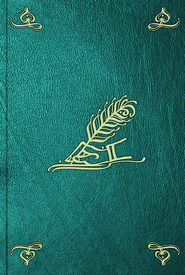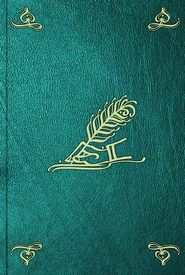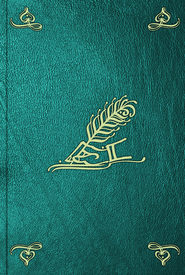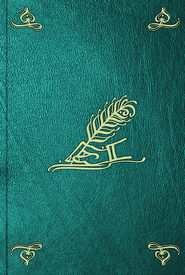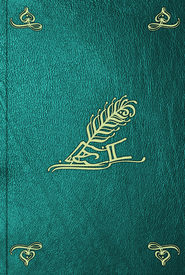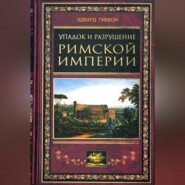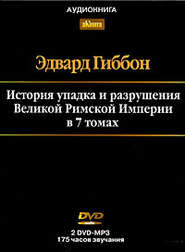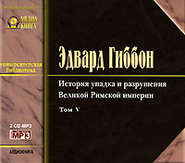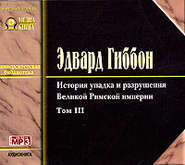По всем вопросам обращайтесь на: info@litportal.ru
(©) 2003-2024.
✖
Private Letters of Edward Gibbon (1753-1794) Volume 2 (of 2)
Настройки чтения
Размер шрифта
Высота строк
Поля
Dear Madam,
As you suffered by the long winter, I may reasonably, as I warmly, hope that your health and spirits have been permanently restored by the milder Spring or Autumn which this month has introduced: – For many reasons you will be surprised, though I think pleased, to hear that I have fixed myself for this season in a country villa of Hampton court. My friend Mr. Hamilton (I must distinguish him by the impertinent epithet of 'single speech') has very obligingly lent me a ready furnished house close to the Palace, and opening by a private door into the Royal garden, which is maintained for my use but not at my expence. The air and exercise, good roads and neighbourhood, the opportunity of being in London at any time in two hours, and the temperate mixture of society and study, adapt this new scene very much to my wishes, and must entirely remove your kind apprehensions of my injuring my health (which I have never done) by excessive labour. I find or make many acquaintance, and among others I have visited your old friend Mrs. Manhood (Ashby) at Isleworth in her pleasant summer-house on the Thames. She overwhelms me with civility, but you need not indulge either hopes or fears: as I hear she is going to accept Sir William Draper[23 - General Sir William Draper is best known from the attack upon him by Junius, his share in the defence of Fort St. Philip in Minorca (1781-2), and his subsequent charges against the Governor. He was twice married, but, after the death of his second wife in 1778, remained a widower. He died at Bath in 1787.] for her third husband.
You will naturally suppose, and will not I think be displeased that I should enjoy this new and unexpected situation as long as the fine weather continues, and our past hardships encourage us to depend on the favour, at least the first favours of the month of October. Beyond that period the prospect in every sense of the word is cloudy, and my future motions will be partly regulated by parliament, and the intanglement of some private pursuits with public affairs. I still flatter myself with the hope of securing two or three weeks for Bath; but if I should again delay that visit till Christmas, I shall prove my perfect confidence in your indulgent friendship, and in your firm belief of my tender attachment, which can alone justify such freedom of conduct. Of the Sheffields I know little, seldom hear from, and am totally ignorant when I shall see them. The Eliots are gone into Cornwall. They say that the son is going to marry Lady Sarah Pitt,[24 - Edward James Eliot married, in September, 1785, Lady Harriet Pitt, second daughter of the first Earl of Chatham. She died September 25, 1786, leaving a daughter, born September 20, 1786. Edward Eliot died in 1797, predeceasing his father.] sister to his intimate friend the Chancellor of the Exchequer.
From the little I have read I agree with you about Gilbert Stuart's[25 - Gilbert Stuart (1742-1786) published in 1780 his History of the Establishment of Religion in Scotland, 1517-1561; and in 1782 the History of Scotland from the Reformation till the Death of Queen Mary. His best-known work was his View of Society in Europe (1778). The story of his attack on Robert Henry, and his attempt to ruin him, are related in Disraeli's Calamities of Authors. If Gibbon alludes to Stuart, Mrs. Gibbon seems to have been justified in her prejudice.] book, but I cannot forgive your indifference and almost aversion to one of the most amiable men, and masterly compositions in the world.
I am, Dear Madam,
Most truly yours,
E. G.
I lay in town last night, and am just setting out for Hampton Court.
N.B. – I never travel after dark, but our dangers are almost over.
446.
To Lord Sheffield
September 29th, 1782.
HIS HAMPTON COURT VILLA.
I should like sometimes to hear whether you survive the scenes of action and danger in which a Dragoon is continually involved. What a difference between the life of a Dragoon and that of a Philosopher! and I will freely own that I (the Philosopher) am much better satisfied with my own independent and tranquil situation, in which I have always something to do, without ever being obliged to do any thing. The Hampton Court Villa has answered my expectation, and proved no small addition to my comforts; so that I am resolved next summer to hire, borrow, or steal, either the same, or something of the same kind. Every morning I walk a mile or more before breakfast, read and write quantum sufficit, mount my chaise and visit in the neighbourhood, accept some invitations, and escape others, use the Lucans as my daily bread, dine pleasantly at home or sociably abroad, reserve for study an hour or two in the evening, lye in town regularly once a week, &c. &c. &c. I have anounced to Mrs. G. my new Arrangements; the certainty that October will be fine, and my encreasing doubts whether I shall be able to reach Bath before Christmas. Do you intend (but how can you intend any thing?) to pass the winter under Canvas? Perhaps under the veil of Hampton Court I may lurk ten days or a fortnight at Sheffield, if the enraged Lady or cat does not shut the doors against me.
The Warden[26 - Lord North was Warden of the Cinque Ports.] passed through in his way to Dover. He is not so fat, and more chearful than ever. I had not any private conversation with him; but he clearly holds the balance; unless he falls asleep and lets it fall from his hand. The Pandæmonium (as I understand) does not meet till the 26th of November. I feel with you that a nich is grown of higher value, but think that only an additional argument for disposing of it. And so by this time Lord L.[27 - Lord Loughborough married as his second wife, on September 12, 1782, the Hon. Charlotte Courtenay, daughter of the first Viscount Courtenay.] is actually turned off. Do you know his partner (Miss Courtenay, the Lord's sister), about thirty, only £4000, not handsome, but very pleasant. I am at a loss where to address my condoleance, I would say congratulation. Town is more a desert than I ever knew it. I arrived yesterday, dined at Sir Joshua's with a tolerable party; the chaise is now at the door; I dine at Richmond, lye at Hampton, &c. Adieu.
E. G.
447.
To his Stepmother
Hampton Court, October 1st, 1782.
My dear Madam,
I feel your anxiety, and am impatient to assure you that the report of your officious visitor is absolutely without foundation. I had not any complaints when I came down to this place; but the air, exercise and dissipation have given me fresh spirits; and I should be apt to fix on the last month as the part of my life in which I have enjoyed the most perfect health. You may depend on my word of honour, that in case of any real alarm, you shall hear from myself or from Caplen. – Excuse brevity, as I save a day, perhaps more, by sending Caplen with Duplicates to London, one copy for the post, the other to take the chance of greater dispatch by the coach. I wish to know what you think of me and my schemes; if you are not perfectly satisfied with my confidence, you may be somewhat displeased with my seeming neglect. I fear we shall not meet till Christmas.
I am
Ever yours,
E. Gibbon.
448.
To Lord Sheffield at Coxheath Camp
Bentinck Street, October 14th, 1782.
RELIEF OF GIBRALTAR.
*On the approach of winter, my paper house of Hampton becomes less comfortable; my visits to Bentinck Street grow longer and more frequent, and the end of next week will restore me to the town, with a lively wish, however, to repeat the same, or a similar experiment, next Summer. I admire the assurance with which you propose a month's residence at Sheffield, when you are not sure of being allowed three days. Here it is currently reported, that Camps will not separate till Lord Howe's return from Gibraltar,[28 - Lord Howe arrived at Gibraltar early in October. On September 13 the final effort of the French and Spaniards to capture the Rock had been repulsed by Sir George Eliott, who destroyed their floating batteries. Lord Howe returned to Portsmouth November 15, 1782.] and as yet we have no news of his arrival. Perhaps, indeed, you have more intimate correspondence with your old school-fellow, Lord Shelburne, and already know the hour of your deliverance. I should like to be informed. As Lady S. has entirely forgot me, I shall have the pleasure of forming a new acquaintance. I have often thought of writing, but it is now too late to repent.
I am at a loss what to say or think about our Parliamentary state. A certain late Secretary of Ireland,[29 - Probably William Eden, who had been secretary to the Earl of Carlisle during his Lord-Lieutenancy of Ireland. But he married Eleanor, daughter of Sir Gilbert Elliot, and sister of the first Earl of Minto. Eden, who was created Lord Auckland in the Irish peerage in 1789, was advanced to an English peerage in 1793, and died in 1814.] the husband of Polly Jones, reckons the House of Commons thus: Minister 140, Reynard 90, Boreas 120, the rest unknown, or uncertain. The last of the three, by self or agents, talks too much of absence, neutrality, moderation. I still think he will discard the game.
I am not in such a fury with the letter of American independence;[30 - The reference probably is to the letter which Fox, before his resignation, wrote to the American agents in Paris, offering "to recognize the independence of the United States in the first instance, and not to reserve it as a condition of peace." Fox interpreted this as an absolute recognition of American independence; Lord Shelburne and his colleagues held that it was a conditional recognition dependent on peace being concluded.] but it seems ill-timed and useless; and I am much entertained with the Metaphysical disputes between Government and secession about the meaning of it. Lord Lough[borough] will be in town Sunday sen-night. I long to see him and Co. I think he will take a very decided part. If he could throw aside his Gown, he would make a noble Leader. The East India news are excellent; the French gone to the Mauritius, Heyder desirous of peace, the Nizam and Mahrattas our friends, and 70 Lack of Rupees in the Bengal treasury, while we were voting the recall of Hastings.[31 - In September, 1780, Hyder Ali invaded the Madras district; Warren Hastings at once negotiated peace with the Mahrattas in order that he might send all available troops to Madras. Sir Eyre Coote defeated Hyder at Porto Novo (July 1, 1781) and at Pollilore (August 27). The full Treasury was the result of the recent overthrow of Cheyte Singh, Rajah of Benares, and the spoliation of the Begums of Oude. In the summer of 1782 the House of Commons resolved that it was the duty of the Court of Directors to recall Hastings. In compliance with this resolution the directors voted an order of recall, but afterwards rescinded it and maintained the Governor-General at his post. See note to Letter 487, on page 85 of this volume.] Adieu. Write soon.
E. G.
449.
To Lady Sheffield
Bentinck Street, October 31st, 1782.
Although I am provoked (it is always right to begin first) with your long and unaccountable silence, yet I cannot help wishing (a foolish weakness) to learn whether you and the two infants are still alive, and what have been the summer amusements of your widowed and their orphan state. Some indirect intelligence inclines me to suspect that the Baron himself has quitted before this time a house of Canvas for one of brick, and that he enjoys a short interval between the fatigues of War and those of Government. Should he happen to find himself in your neighbourhood you may inform him that Hugonin (good creature) came to town purposely on my business and passed three hours with me this morning. Harris has resigned his Case of the conflagration, and either by a sale to Lord Stawell or by a new Tenant we shall make it rather a profitable affair.
ENTHUSIASM FOR SIR GEORGE ELIOTT.
You have doubtless received very accurate accounts of my proceedings from the Cambridges by which channel I have likewise obtained very frequent narratives of your life and conversation, and this mutual Gazette has contributed not a little to stifle the reproaches of my conscience. In my excursions round the Hampton neighbourhood, I have often visited and dined with them, and found him properly sensible of his happyness in the absence of his wife: indeed I never saw a man more improved by any fortunate event. My campaign, and it has been a pleasant one, is now closed, but in the time which remains before the opening of our Pandemonium, I should not dislike to breathe for a week or ten days the air of Sheffield Place, and as the Lord will be accessible in town before Christmas, my attack (according to modern rules) will be chiefly designed for the Lady. About Wednesday or Thursday next would be the day that I should think of moving, but I wish to be informed how far such a plan may consist (as the Scotch say) with other arrangements. Adieu. Is not Elliot[32 - Sir George Augustus Eliott, created Lord Heathfield for his defence of Gibraltar.] a glorious old fellow? We suspend our judgment of Lord Howe, yet I like the prospect.
I embrace, &c.,
E. G.
450.
To his Stepmother
November 7th, 1782.
Dear Madam,
Last week I finished my Hampton Court expedition, and think myself obliged to the person and to the accident which have thrown that unexpected but not unpleasing variety into my Summer life. I am now fixed in town till Christmas, or if Lord Sheffield who has quitted his camp should drag me into Sussex, it can be only for three or four days.
The Parliamentary campaign is approaching very fast,[33 - Parliament, which had been prorogued to November 26, was further prorogued to December 5, in order that the negotiations for peace might be completed. Peace was provisionally signed with the United States at Paris on November 30, 1782.] and a very singular one it must be from the conflict of three parties, each of which will be exposed in its turn to the direct or oblique attacks of the other two. As a matter of curiosity I shall derive some gratification from my silent seat, but at present I do not perceive its use in any other light. From honour, gratitude and principle I am and shall be attached to Lord N., who will lead a very respectable force into the field, but I much doubt whether matters are ripe for either conquest or coalition, and the havock which Burke's bill has made of places, &c., encreases the difficulties of a new arrangement. However a month or two may change the face of things, and the faces of men.
WILLIAM PITT AND MRS. SIDDONS.
Among those men surely Will Pitt the second is the most extraordinary.[34 - Pitt's first meeting with Gibbon is thus described by Sir James Bland Burges, Bart. (Letters and Correspondence, pp. 59-61). The dinner was given in Lincoln's Inn to the officers of the Northumberland Militia, who were quartered in the Inn during the Gordon Riots."I invited the four military gentlemen, our committee, and six other persons the best qualified I could meet with, among whom were my father, Lord Carmarthen, and Mr. Gibbon, the historian, who was then at the zenith of his fame, and who certainly was not at all backward in availing himself of the deference universally shown to him, by taking both the lead, and a very ample share of the conversation, in whatever company he might honour with his presence. His conversation was not, indeed, what Dr. Johnson would have called talk. There was no interchange of ideas, for no one had a chance of replying, so fugitive, so variable, was his mode of discoursing, which consisted of points, anecdotes, and epigrammatic thrusts, all more or less to the purpose, and all pleasantly said with a French air and manner which gave them great piquancy, but which were withal so desultory and unconnected that, though each separately was extremely amusing, the attention of his auditors sometimes flagged before his own resources were exhausted… He had just concluded, however, one of his best foreign anecdotes, in which he had introduced some of the fashionable levities of political doctrine then prevalent, and, with his customary tap on the lid of his snuff-box, was looking round to receive our tribute of applause, when a deep-toned but clear voice was heard from the bottom of the table, very calmly and civilly impugning the correctness of the narrative, and the propriety of the doctrines of which it had been made the vehicle. The historian, turning a disdainful glance towards the quarter whence the voice proceeded, saw, for the first time, a tall, thin, and rather ungainly-looking young man, who now sat quietly and silently eating some fruit. There was nothing very prepossessing or very formidable in his exterior, but, as the few words he had uttered appeared to have made a considerable impression on the company, Mr. Gibbon, I suppose, thought himself bound to maintain his honour by suppressing such an attempt to dispute his supremacy. He accordingly undertook the defence of the propositions in question, and a very animated debate took place between him and his youthful antagonist, Mr. Pitt, and for some time was conducted with great talent and brilliancy on both sides. At length the genius of the young man prevailed over that of his senior, who, finding himself driven into a corner from which there was no escape, made some excuse for rising from the table and walked out of the room. I followed him, and, finding that he was looking for his hat, I tried to persuade him to return to his seat. 'By no means,' said he. 'That young gentleman is, I have no doubt, extremely ingenious and agreeable, but I must acknowledge that his style of conversation is not exactly what I am accustomed to, so you must positively excuse me.' And away he went in high dudgeon, notwithstanding that his friend [Lord Sheffield] had come to my assistance."] I know you never liked the father, and I have no connection public or private with the son. Yet we cannot refuse to admire a youth of four and twenty whom eloquence and real merit have already made Chancellor of the Exchequer without his promotion occasioning either surprize or censure.
We are much indebted to your Bath Theatre for Mrs. Siddons:[35 - Mrs. Siddons first appeared on the London stage in December, 1775, when she acted Portia at Drury Lane. She gained no great success, and in June, 1776, received her dismissal from the managers. In the provincial theatres, and especially at the Bath Theatre, then managed by Palmer, she became famous. At Bath, in 1780, she had twice acted the part of Lady Townly in Vanbrugh's and Cibber's play of The Provoked Husband. In 1782 she reappeared in London (October 10) at Drury Lane, in the part of Isabella in Southerne's tragedy of The Fatal Marriage. On October 30 she took the part of Euphrasia in Murphy's Grecian Daughter. On November 8 she played Jane Shore in Rowe's tragedy of that name. W. Hamilton's picture of Mrs. Siddons as Isabella belongs to the nation.] two years ago, and in the part of Lady Townley, she did not strike me: but I saw her last night with the most exquisite pleasure. She gave sense and spirit to a wretched play (the Fatal Marriage), and displayed every power of voice, action, and countenance to a degree which left me nothing to wish. To-morrow I promise myself still more satisfaction from Jane Shore, as the character is more worthy of her talents. Adieu, Dear Madam. Inform me that the beginning of the winter has not affected your health. Whatever may be the state of my namesake, I hope at Christmas to bring you a sound body, and a mind not dissatisfied with external things, because it is not dissatisfied with itself.
I am
Ever yours,
E. G.
451.







